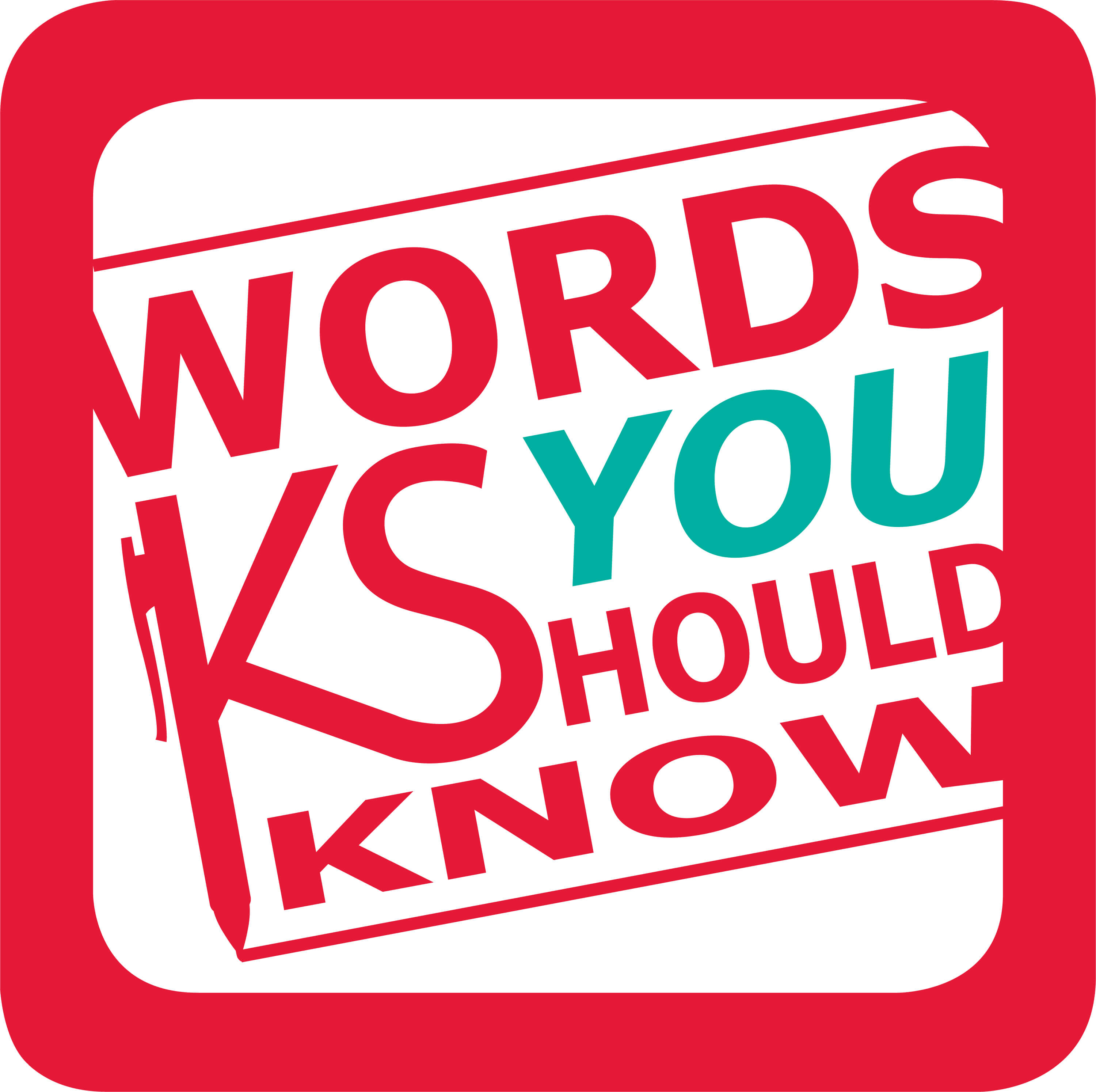
I don’t know if birth order has anything to do with grammar persnicketiness. Do eldest children have a tendency of dotting their i’s and crossing their t’s? Are youngest children inclined toward utter grammar rebellion?
Was that first known person to drop an “OMG” in 1917—yep, I said that date correctly, 1917—was he a youngest child? I bet he was.
Was the member of One Direction who once jumped off the stage to correct the grammar on a fan’s sign an oldest child? I have no idea, but that’s my guess.
Here’s what I do know:
- Lindley Murray, often called the “Father of Grammar” was an eldest child.
- Noah Webster, American English renegade, was the 4th child out of 5.
- Ben Franklin, English language revolutionary, was the 15th child out of 17. (Yikes, power to that mama…)
This is the Words You Should Know podcast, Season 2: Episode 9, and it’s time to go deeper.
Season 2, Episode 9: “Whippersnappers” & the Birth Order of Grammar Rebels
Podcast: Play in new window | Download
Approximate transcript:
Of course, I’m a youngest child, and we all know how I can delve deep into the correct matters of language. But for me it’s always a hunt, a quest, a matter of discovery. There is a right answer today, in this month, in this year. But that might not be the right answer fifty years ago. Or even one style book ago. Yes, the “i” of Internet can be lower case. That’s officially been okay for a few years now. Or at least it has been according to the Chicago Manual of Style. Sorry, tech guys arguing this. I hear you. I do. But sometimes, language simply evolves.
It grows up. Just like people.
What was it Mark Twain said? “Age is a matter of mind over matter. If you don’t mind. It doesn’t matter.”
But sometimes age order does matter. Or, at least it does when it comes to the words. For example, what about “oldest” and “eldest”?
The answer is simpler than you realize.
“Oldest” and “eldest” do indeed have the same definition. The only difference is that “eldest” is used when referring to family relationships.
Do you have to use “eldest” in these situations? Of course not. There’s no grammarian coup over this distinction. However, it does explain why the word “eldest” brings to mind the Bennett sisters from Pride and Prejudice and Louisa May Alcott’s Little Women. It’s all about family relationships.
So whether you are the eldest sibling or the youngest, you finally have your answer—though, is anyone else bummed there isn’t some equally antiquated variation of “youngest” to match? Just me? I don’t believe it.
Now, when I think of those terms for the young, one of my favorite rarely used ones is “whippersnappers.” No, it has nothing to do with family relationships, but it’s a great one all the same. It has a lovely rhythm to it when rolling out of your mouth, perhaps best paired with an angry older voice, I know.
Of course, an overly-confident whippersnapper—sometimes even thought of as brazen or impertinent—has been called a “whipper snapper” since about 1700. It comes from a possible combination of “snipper-snapper,” as in a troublemaker out on the streets of Christopher Marlowe and William Shakespeare’s day, and “whip-snapper,” as in a youth who has nothing better to do than hang out snapping a whip.
Never been called a whippersnapper? How about this: have you have been called or simply felt “minuscule”?
Itty bitty, tiny little hiccups in our writing might not always be noticed, but that doesn’t mean we still shouldn’t try to do better—even when some people say these mistakes are okay.
- “Minuscule” is a big word with a tiny meaning. Literally. It means to be incredibly small. It comes from a diminutive of “minus,” or minusculus in Latin.
- “Miniscule” is a confused spelling, taking the idea of “mini” and mixing up the words. “Miniscule” isn’t the standard spelling. If you were in a spelling bee, it would be considered incorrect. However, because this word is misspelled so often, it’s starting to become an alternate form. Mini-me probably isn’t behind the surge of this spelling faux pas, but maybe remembering his work with Dr. Evil might help you remember that this isn’t the accepted usage you’re looking for.
I know what you’re thinking: How can people simply make up a new spelling and have it become normalized because of misspelling it so often? Depending on your outlook, this is the awesome or disturbing thing about the English language over time. Just like “pleaded” vs. “pled,” “light” vs. “lit,” and “imbed” vs. “embed,” words and their spellings evolve. Heck, sometimes mistakes even replace the original logical forms entirely.
Will we see this with “miniscule”? Time will only tell. But until then, let’s try to get it right, folks.
Whether you’re the eldest or the youngest.
Whether you prefer your Internet with a capital “i” or not.
What does your birth order say about you and your grammar fussy tendencies? Does it play a role? Reach out to me. I’d love to conduct an informal poll on this one.
Whippersnappers, whippersnappers, whippersnappers. I can’t say it with a straight face … I guess I am the youngest child.
Join 1,000+ subscribers and sign up for my English language tips and trivia email newsletter for more like this.
If you like what you’ve been hearing, don’t forget to subscribe to this podcast (via Apple Podcasts, Android, Google Podcasts, Stitcher, or RSS) so you’ll never miss out on another word you should know. Many thanks to those of you who have taken the time to rate my show on iTunes or wherever you listen.
Words. Language. Communications. You’ve got this.
